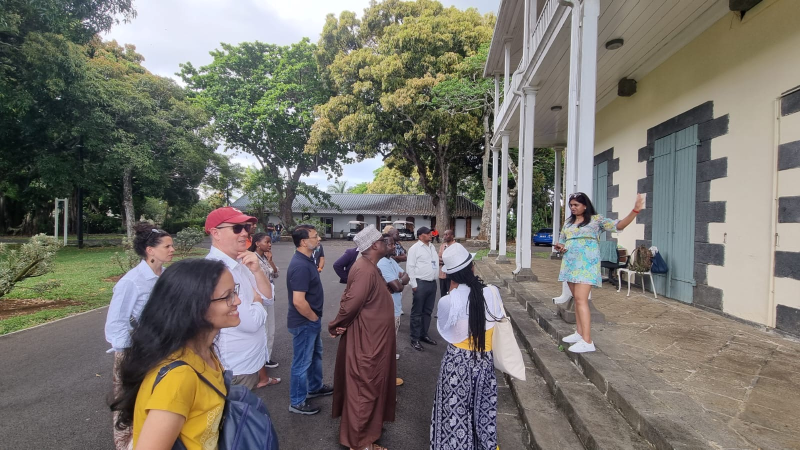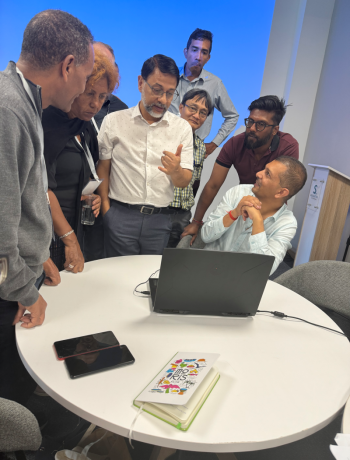Between October and December 2023, Mauritius collaborated with the ICCROM-IUCN World Heritage Leadership (WHL) programme, the Africa Unit of the UNESCO World Heritage Centre (WHC) and ICOMOS International to deliver hybrid capacity building on Impact Assessment for World Heritage.
From 23 October to 1 December 2023, WHL, WHC and ICCROM worked closely with the management team of the World Heritage property of Aapravasi Ghat – one of Mauritius’ two sites on the List – to build the capacity of heritage professionals in Mauritius and from East Africa to conduct impact assessments. Impact assessment methodology is a critical tool to use in determining the consequences of development projects on heritage places.
The workshop, coordinated with the Government of Mauritius, assembled representatives of Mauritian ministries, heritage institutions, planning agencies and local councils, together with heritage professionals from the region, including Eritrea, Ethiopia, Kenya, Tanzania and Uganda.
This capacity-development activity was developed within the framework of World Heritage international assistance “Capacity building in Heritage Impact Assessment and visual impact assessment for the Aapravasi Ghat World Heritage Property buffer zone” and supported by the World Heritage Fund.
The activity consisted of three phases: The team first participated in an online course on World Heritage basics from 23 to 25 October 2023. This was followed by an in-person workshop on the methodology of the Guidance and Toolkit for Impact Assessments in a World Heritage Context, implemented in Mauritius at the World Heritage sites of Aapravasi Ghat and Le Morne Cultural Landscape. In the third and final phase, participants worked online in groups to prepare impact assessment reports on hypothetical development proposals that they presented on 1 December 2023 as a final outcome of the learning.
The workshop offered a space for national reflection on how planning and development frameworks and policies could affect Mauritius’ heritage and how to work together across sectors and institutions to identify World Heritage-conscious development in the context of Mauritius and eastern Africa.


